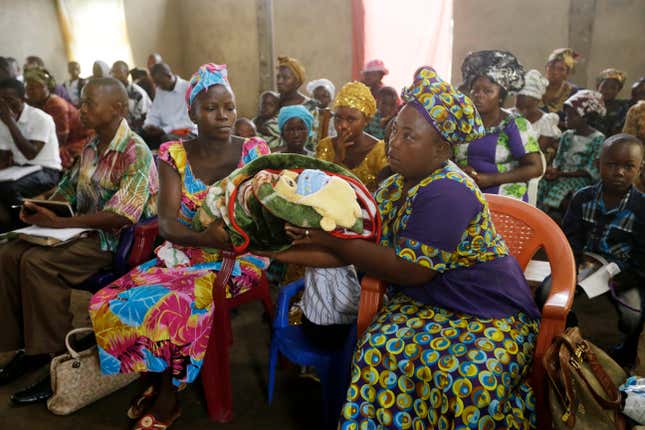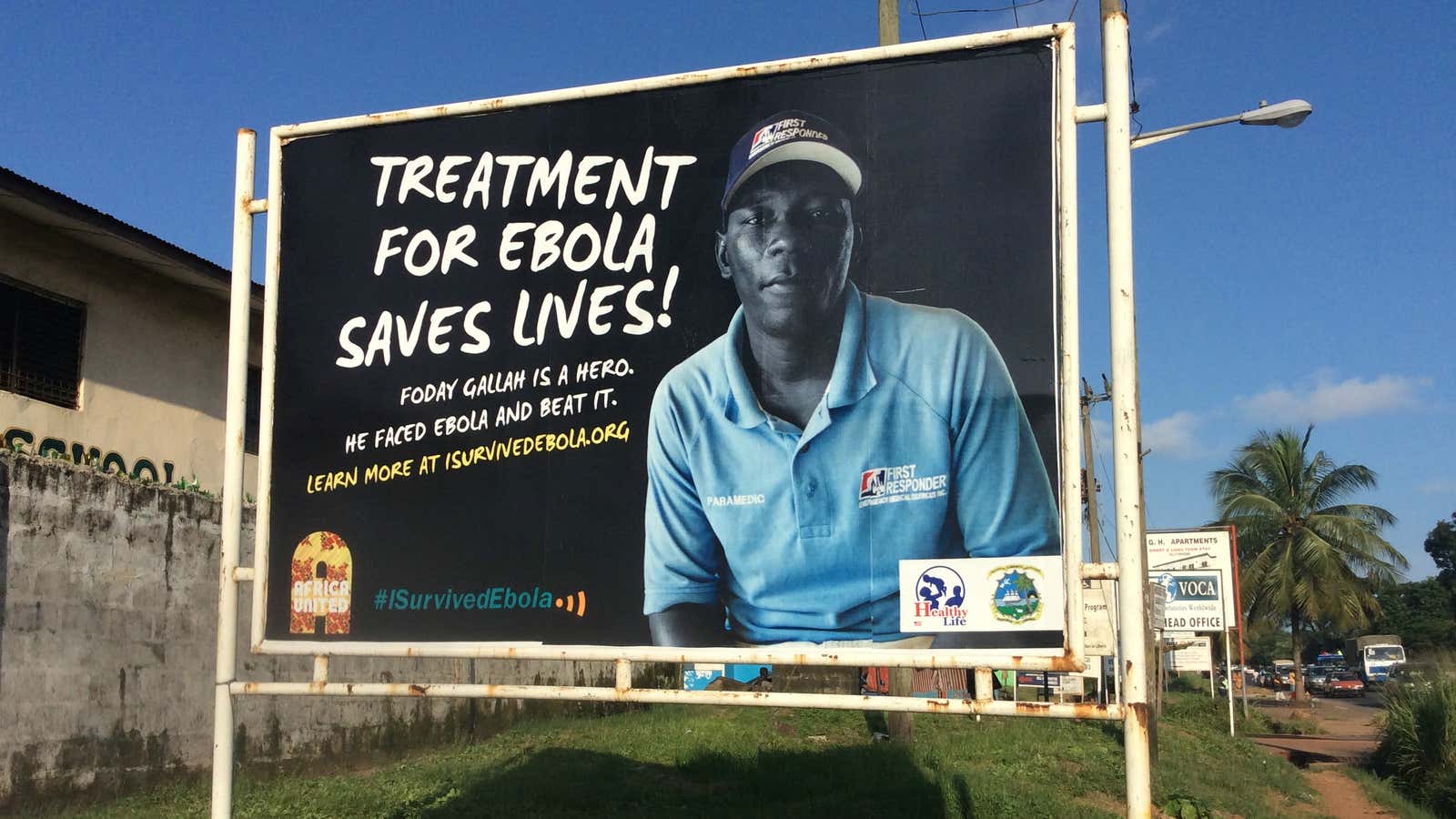Nurse Mariatu Fofana says she should have known better than to touch and hug her father as he lay dying at his home near the capital of Sierra Leone, but she has paid an unbearable price for her error.
Ebola had been raging for months by the time he fell ill in February with symptoms of the disease. Health organizations and aid had flooded the country, reinforcing the government’s drive to educate the public on how to stop the spread of the virus.
As a nurse, Fofana knew the rules: isolate the patient, wash hands, avoid contact with victims of the disease. But her father had been diagnosed—wrongly, with a hernia and her love for her father allowed her to drop her guard in his final days of life.
“Initially I didn’t want to touch him,” she said of the time when he fell sick. After he died, she said: “I held him in my arms, shook him.”
Disregarding those precautions led to the deaths of seven members of Fofana’s family in the weeks that followed, including her husband and child. She too contracted the virus, but survived.
Fofana’s story illustrates how difficult it is to stamp out the last vestiges of Ebola from Sierra Leone, Guinea and Liberia, where it has killed more than 11,300 people since March 2014: However hard authorities try, it is tough to persuade everyone to follow public health precautions needed to eradicate the disease. Even nurses are at risk.
Accounts by other survivors underscore the fragility of sub saharan Africa’s rural, uneducated or semi-illiterate women, who are vulnerable to emergency and conflict situations and bear the brunt of national disasters. In Sierra Leone an estimated 4,000 people have survived out of over 8,704 confirmed infected with the virus, according to figures from the National Ebola Response.
The three countries went two weeks without a new case, but on Oct. 16 two more people were diagnosed in Guinea.
In addition, a new threat has emerged as a British nurse who had recovered from Ebola has apparently suffered a relapse and is critically ill. Health professionals say that this raises the possibility that the long term health impacts of the virus may be much more dangerous than had previously been thought.
Information war
It also means that information campaigns to educate the public in Guinea, Liberia and Sierra Leone are far from over.
Women are particularly vulnerable because they care for the family and are often marginalized in terms of education and access to resources. In addition, women who lost their husbands to Ebola often lose the family’s primary breadwinner.

At the height of the epidemic in Sierra Leone, Media Matters for Women, a journalist-led non-profit organization deployed Bluetooth technology to provide critical information to women and girls.
Today, its focus is to provide information to survivors through health centres and maternal clinics: how to reintegrate into society and overcome to the social stigma that often follows former patients and how to cope with challenges of health and access to employment.
“It’s an information war we are fighting,” said Victoria Nicol, who heads the Sierra Leonean NGO, which hired journalists to send pre-recorded messages to the towns of Makeni and Bombali in western Sierra Leone that were particularly hard hit during the Ebola epidemic.
Even though new cases of Ebola have dwindled almost to zero many women say they are still fighting an uphill battle against the basic social deficiencies that allowed the virus to spread with ease.
These include ignorance and traditional practices but inadequate access to basic health care also played a huge part.
For example, Fofana says her family was exposed to Ebola in part due to her not heeding her own concerns and ignoring protocols, but the misdiagnosis of her father also played a crucial role and that is evidence of a weak healthcare system.
“Ebola was a wake-up call,” said Bernadette French of the Sierra Leone Market Women’s Association. “We had no emergency plan. It exposed the state of our health services.”
For a cash-strapped country like Sierra Leone, the long term answer could lie in community ownership of health care through organizations such as German Kooperation Sierra Leone (GECKO), said Baba Car Conteh, a psycho-social worker who works with Ebola survivors in the southwestern Sierra Leone town of Port Loko.
The group provided support and intervention in places overlooked by government outreach and was a lifeline at a time when healthcare workers were deeply afraid.
“Our response came at a time when traditional beliefs, cultural practices ignorance were at a record level,” said Conteh.
These days most of the international organizations that poured in at the height of the crisis have packed up and gone home, taking their expertise and resources with them. But groups like GECKO are still on the ground.
Psychosocial care is going to be critical in the months ahead for bereaved families and survivors.
“There’s more to be done,” Conteh said.
